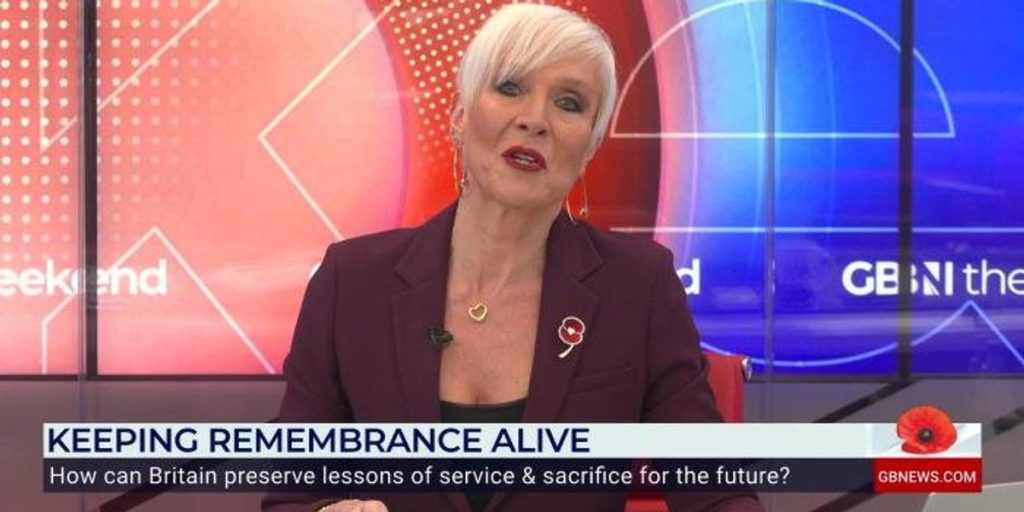Listen to the article
Conservative MP and ex-soldier Bob Seely has launched a scathing critique of what he describes as Britain’s “self-hatred,” calling for an immediate end to what he perceives as “ugly propaganda” targeting the nation’s youth through diversity initiatives.
In comments made during a recent interview with GB News, Seely, who served in the armed forces before entering politics, expressed strong concerns about the impact of what he termed the “woke diversity agenda” on British society and national identity.
“We need to stop this self-hatred of Britain,” Seely stated during the broadcast. His remarks come amid ongoing national debates about how British history and values should be represented in educational curricula, public institutions, and cultural discourse.
Seely’s comments reflect growing tensions within Conservative ranks about issues related to national identity and cultural representation. The MP has positioned himself among those within the party who have become increasingly vocal about perceived threats to traditional British values and historical narratives.
The term “woke,” originally used to denote awareness of social injustice issues, has become politically charged in recent years. Critics like Seely suggest that diversity and inclusion efforts have gone too far, while proponents argue these initiatives simply aim to create more equitable representation and acknowledge historical complexities.
This intervention by Seely comes at a time when the Conservative Party continues to grapple with defining its stance on cultural issues. Some members have embraced a more combative approach to what they see as excessive political correctness, while others advocate for a more moderate position that acknowledges the importance of inclusion while preserving traditional values.
Political analysts note that these culture war debates have intensified in Britain following Brexit, with questions about national identity taking center stage in political discourse. Dr. Eleanor Matthews, a political scientist at King’s College London, explains: “We’re seeing politicians increasingly frame social issues through the lens of national identity and traditional values. This resonates with certain voter demographics who feel rapid social changes have marginalized their perspectives.”
The MP’s military background adds another dimension to his comments. Veterans’ groups have expressed mixed reactions, with some supporting Seely’s stance and others cautioning against using military service as a platform for divisive rhetoric.
Education professionals have also weighed in on Seely’s characterization of diversity initiatives as “ugly propaganda.” Dr. James Harrington, education policy researcher, commented: “What some politicians describe as ‘propaganda’ often represents efforts to include previously marginalized perspectives in our understanding of history and society. The debate should focus on how we can present multiple viewpoints rather than dismissing inclusion efforts outright.”
Polling suggests British public opinion remains deeply divided on these issues. Recent YouGov surveys indicate generational differences in attitudes toward diversity initiatives, with younger Britons more likely to support broader inclusion efforts while older demographics often express concerns about preserving traditional narratives.
Seely’s comments have drawn both support and criticism from fellow parliamentarians. While some Conservative colleagues have echoed his sentiments, opposition MPs have condemned what they describe as divisive rhetoric that undermines legitimate efforts to create a more inclusive society.
As Britain continues to navigate complex questions of national identity in a post-Brexit landscape, interventions like Seely’s highlight the increasingly polarized nature of cultural debates. Political observers suggest these discussions will likely remain prominent as the country approaches the next general election, with parties seeking to define their positions on issues that resonate deeply with their core supporters.
The MP’s office has indicated that Seely plans to elaborate on his position in upcoming parliamentary sessions, potentially signaling that these cultural debates will remain at the forefront of British politics in the months ahead.
Fact Checker
Verify the accuracy of this article using The Disinformation Commission analysis and real-time sources.




9 Comments
MP Seely’s comments reflect the ongoing tensions around national identity and cultural representation in Britain. While his concerns about ‘self-hatred’ may resonate with some, labeling diversity initiatives as ‘ugly propaganda’ seems overly simplistic. These are nuanced debates that require thoughtful, evidence-based discourse.
Interesting perspective from MP Seely on the impact of the ‘woke diversity agenda’ in Britain. I can see both sides of this debate – the importance of preserving national identity vs. the value of embracing multiculturalism. Curious to hear more balanced views on this topic.
I agree, this is a sensitive and multifaceted issue. It would be helpful to hear more constructive dialogue from all sides, rather than dismissive rhetoric. Fostering mutual understanding is key when addressing complex social challenges.
While MP Seely raises valid concerns about the need for balanced representation, I’m cautious about labeling efforts to promote diversity and inclusiveness as ‘ugly propaganda’. These are complex societal issues that warrant nuanced discussion, not political rhetoric.
Interesting to see this political debate play out around the ‘woke diversity agenda’ in Britain. While MP Seely’s concerns about national identity are understandable, I’m not convinced that labeling diversity efforts as ‘ugly propaganda’ is a constructive approach. These are sensitive issues that warrant careful, evidence-based discussion.
MP Seely’s critique of the ‘woke diversity agenda’ touches on important questions about national identity and cultural representation in Britain. However, his use of inflammatory language like ‘ugly propaganda’ is unlikely to foster the kind of nuanced, balanced discussion these complex issues require.
MP Seely’s comments highlight the ongoing tensions around national identity and cultural representation in Britain. While his perspective may resonate with some, I’m wary of dismissing diversity initiatives as ‘ugly propaganda’. These are complex societal issues that require nuanced, fact-based dialogue, not political rhetoric.
I agree, the language used by MP Seely seems overly charged and could further inflame tensions. Constructive, evidence-based discourse is needed to address these sensitive issues in a way that promotes mutual understanding.
The debate around how to balance preserving traditional British values with embracing diversity and inclusiveness is a complex one. I appreciate MP Seely raising these important issues, but caution against inflammatory rhetoric that could further polarize the discussion. Nuanced, fact-based dialogue is needed.